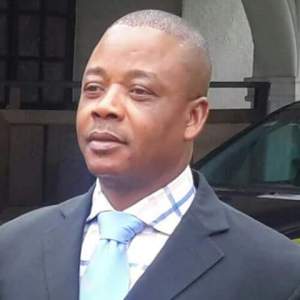Political Issues
Defections As Signposting Nigeria’s Political Evolution -By Udeme Nana


Udeme Nana
In the past few days, the political map of Nigeria has been redrawn. The meeting and subsequent signing of a Memorandum of Understanding among more than 35 political parties with the cognomen of CUPP (an acronym from the Coalition of United Political Parties) was an early sign of an impending political tremor in the country.
But the earthquake which shook the two main rival parties, the All Progressives Congress (APC) and the Peoples Democratic Party (PDP) was the defection of 14 senators on the platform of the APC and 37 of their members in the House of Representatives.
This was followed immediately by the defection of the Senate president, Dr. Bukola Saraki back to the PDP, on whose platform he had served as a two term governor of Kwara State from 2007 to 2015.
The ovation, naturally, is louder on the side of the PDP than that of the APC, owing to the calibre of politicians moving house from the rival APC into the waiting and warm embrace of the PDP.
It is indeed one of the happier moments to belong in PDP, whether in actual terms these seeming “earth shaking” movements will translate into electoral victory in 2019 or not.
One fact should not be lost on Nigerians: politicians are an itinerant lot, particularly, Nigerian politicians. They are like snoop-dogs – they tend to have noses for where the game is hiding. Occasionally, they miss their targets and lose out for a season and sometimes, they hit the bulls eye and live comfortably even if it is for a season or two.
One sees the unfolding drama as a positive one in the march towards deepening the democratic culture in our country. It is a welcome evolution as more like-minded politicians are moving into one ship to continue the journey of nation building or is it self preservation and advancement of personal ambition?
Great societies develop and make more progress in seasons like this because citizens will have clearer alternatives to base their choices on during elections.
Such choices are always about differences in powerful, contentious and contending viewpoints.
Just before Nigeria’s independence, the two late founding political fathers, Dr. Nnamdi Azikiwe and Chief Obafemi Awolowo, represented two different, even if somewhat identical platforms.
In an interview while campaigning for the Presidency in 1979, the late Zik of Africa clearly stated that “in 1945, when the Richards Constitution was promulgated”, he “opposed the division of Nigeria into three parts”. The late sage was of the view that “regionalism was not in the interest of Nigeria as that would lead to provincialism and parochialism”. On the other hand, Chief Awolowo stood for regionalism, the creation of more states/regions in the country, and with a constitutional provision for secession. Both political icons actually debated these ideas before the Secretary of State for the colony of Nigeria at that time, Oliver Littleton.
Almost 60 years into political independence, what do present day politicians dispute? What are the trending philosophies, ideals, values on critical issues of state?
What Nigerians should reflect on are such viewpoints, the ideas, the positions taken by these politicians on matters concerning Nigeria, it’s development, it’s progress and stature in the comity of nations.
How should Nigeria be organised, what form or type of government, what’s the stance on the devolution of powers, the management of the economy, foreign affairs, education, healthcare? Do we really need roads to be designated as federal, where there is nobody known, called and addressed as a federal man or woman in Nigeria?
What are the stances of these politicians on revenue allocation and so many other germane questions, including local government autonomy, state police, self accounting legislatures and the judiciary, and many more?
In the United States of America, it was the strongly held political perspectives of two American Statesmen, Thomas Jefferson and Alexander Hamilton, representing two powerful and antagonistic viewpoints, which split America into the Blue and Red ties, symbols of the Democratic and Republican Parties respectively.
Hamilton stood on the side of a very strong central government (federation), while Thomas Jefferson promoted the ideals of a looser confederation with more powers to the states in the Union.
As alluded to, these two powerful political opponents and the ideas which they advanced led to the formation of the two political parties which now dominate the politics of the United States of America.
It would be great for Nigerians to look at these political events as a necessary milestone in the democratic evolution of our country and NOT as an ultimate victory for one party, and defeat for another. Nigerians should see the larger picture of two big ideology or issues-driven parties emerging from the dark room of these momentuous defections/realignment of political gladiators.
It is pertinent to note that when the military president, General Ibrahim Babangida, tried to decree Nigerians into two political parties, it didn’t work as such institutions must evolve on their own terms. That seems to be what is unfolding before Nigerians today.
Udeme Nana, a mass communication scholar and public affairs expert writes from Uyo, Akwa Ibom State.



















